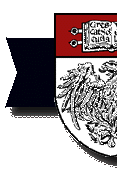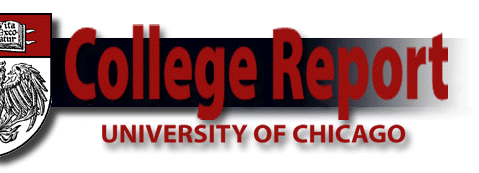 |
Making democracy
safe for the world
What made a
three-day gathering of 50-some public figures and scholars, meeting
at the University to discuss the political, social, and environmental
demands on today's democracies, different from any other conference
or symposium? It wasn't simply the conference's ambitious topic,
summed up in its title: "The Challenge of Modern Democracy."
Nor was it
merely the fact that the April 9-11 event, staged in the Max Palevsky
Theater, was broadcast via the World Wide Web and C-Span. Or that
the participants included a range of luminaries from Francis Cardinal
George, the Archbishop of Chicago, to Jean-Bertrand Aristide, the
former president of Haiti. Or even that the program included sessions
focusing on nine fields with issues and questions that are inseparable
from those facing modern democracies: economics, religion, the environment,
public health, education, law, computing, human rights, and the
media.
No, what made
headlines was the fact that the conference was completely student-run
and the brainchild of two students in the College: Renato Mariotti,
'98, and Rohit Khanna, '98.
Mariotti, a
political-science concentrator from Chicago, and Khanna, an economics
concentrator from suburban Philadelphia, are the first to admit
that the conference didn't end up quite they way they'd envisioned
it, two years earlier, during a late-night conversation over a stuffed
spinach pizza. Back then, they'd wanted to plan a conference that
would disprove the perception that students, as members of "Generation
X," lack political convictions. But, as Khanna and Mariotti explained
in the conference literature, when they began to put together a
program that would assemble contemporary leaders and thinkers, they
realized that "student apathy was a symbol of a much larger dilemma":
the fact that as the world becomes more and more complex, decision-making
is often relegated to the "experts."
Thus, as Mariotti
told the Chicago Maroon, they began to plan the conference as a
"kind of investigation" to see whether such reliance upon experts
is itself undemocratic.
Fittingly
enough, although the students got lots of advice from University
administrators and faculty along the way-Martha Nussbaum, the Ernst
Freund professor of law and ethics, chaired a 21-person faculty
advisory group-they ended up doing most of the work themselves.
That meant hundreds of hours spent drawing up lists of panelists,
writing letters of invitation, and calling upon foundations and
corporations for support.
In the end,
Khanna and Mariotti raised $120,000, including support from the
MacArthur and Spencer foundations and United Airlines, as well as
underwriting from a number of University divisions and groups. Also,
true to the nature of the enterprise, each conference session featured
a question-and-answer period, giving both the on-site audience and
those following the event via World Wide Web the chance to participate.
Did the organizers
accomplish all they'd hoped? Rohit Khanna thinks they at least made
one thing clear. As he told the Chicago Tribune, "If two
students could put together something like this, then I think it
shows that probably any citizen could-if they really wanted to-make
a difference."-M.R.Y.
|



